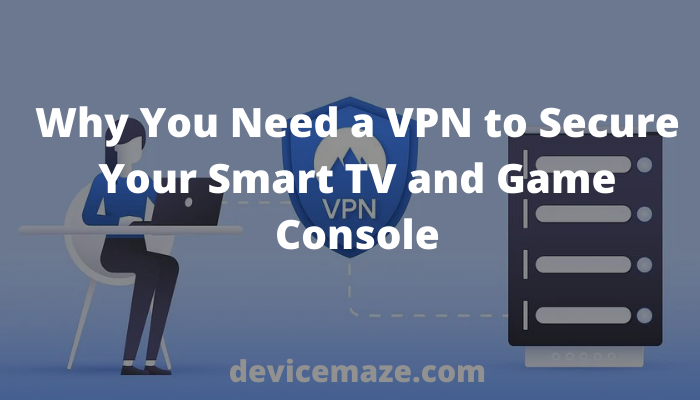A VPN is no longer a luxury these days. Now that cybercrime is drastically growing, it’s essential to protect your online privacy. Most people try to secure their desktops and smartphones; however, the whole ecosystem of things connected to the internet is way broader. Hackers would be more than happy to be able to hack your smart TV, a gaming console, or even your security cameras. How do you ensure that you also protect these devices with a VPN?
Why to Use a VPN
A great VPN is not always free, and installing one can sometimes cause a headache. So why should you invest your time and money in a VPN? There are several good reasons for this:
1. Online Privacy
Your personal information is worth gold. Hackers lurk everywhere to collect as many names and address details, e-mail addresses, passwords, and credit card information as possible. With a VPN, you add an extra layer of protection to all your internet traffic. Your data is exchanged with the VPN server via an encrypted tunnel. The VPN server provides encryption and then forwards the encrypted data to a public server or your provider’s server. Thanks to encryption, hackers can no longer read your data. And because a VPN server protects your IP address, third parties can no longer trace data to you.
2. Digital Security
A high speed VPN also protects against viruses and malware. If you stream or game a lot, you probably also want to stay protected against DDoS attacks. These attacks are often carried out by gamers who want to cheat. At crucial moments in the game, they switch off the internet access and are able to cut off other players from the game.
3. Regional Blocks
Want to play a game as soon as it comes out? And can’t you wait for the sun to rise on your side of the globe too? Act like a local and connect to a VPN server in the country where the game is first launched.
4. Bandwidth Limit
As an active gamer, you’ve probably encountered it before: bandwidth throttling. Your internet provider temporarily reduces your internet speed, leaving you with blocky images and longer loading times. If you have a VPN enabled, your ISP will no longer be able to monitor your online activity. This way, your provider cannot see that you use the network intensively and then limit your bandwidth.
How to Use a VPN
Do you want to install a VPN on your desktop or smartphone? Then it’s just a matter of downloading the right software and starting it up. Unfortunately, this process is not as easy for smart TVs and game consoles. Yet it is not impossible:
Game console
If you have a PS4 or PS5, you can’t just look up the app in the Sony Playstation Store. But your console is connected to your WiFi router, and you can often install a VPN on it. You do this by manually entering your account details into the router. Exactly how this is done depends on the type of router you’re using, but in general, the process goes like this:
- Log in to your router
- Find the Settings menu
- Look for VPN
- Enter the requested information: name of the provider, address of the server, username and password, and the encryption key previously received
Smart TV
If you install a VPN on your router, all devices on that same network are protected by a VPN. So it also works with your smart TV. If you have a router that does not support VPN, you can consider buying a new router that does. Another, and cheaper option, is to connect your smart TV to your Windows PC:
- Install VPN on your Windows PC
- Type ‘mobile hotspot settings’ in the Windows search bar
- Enable Mobile Hotspot
- Connect your smart TV to the mobile hotspot
